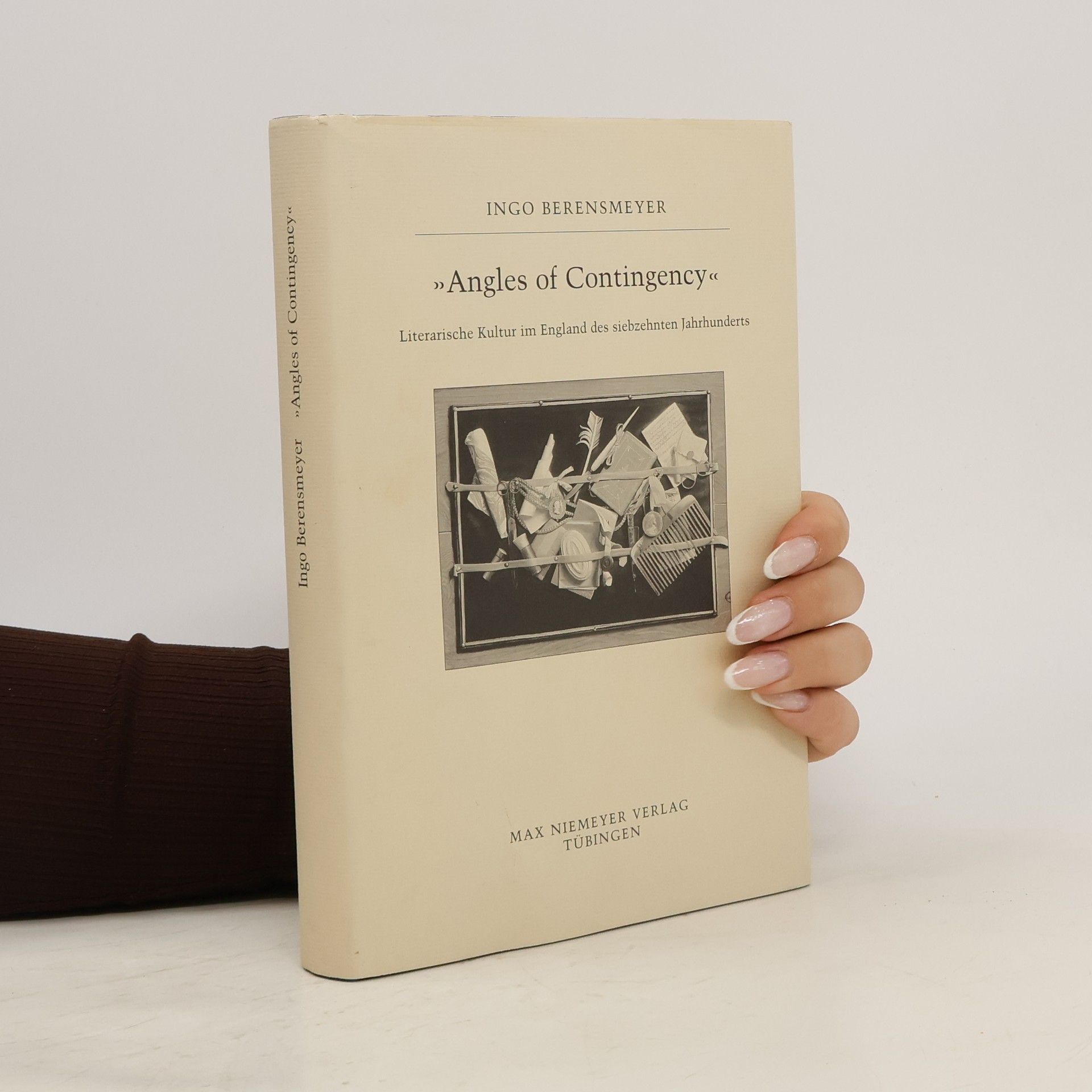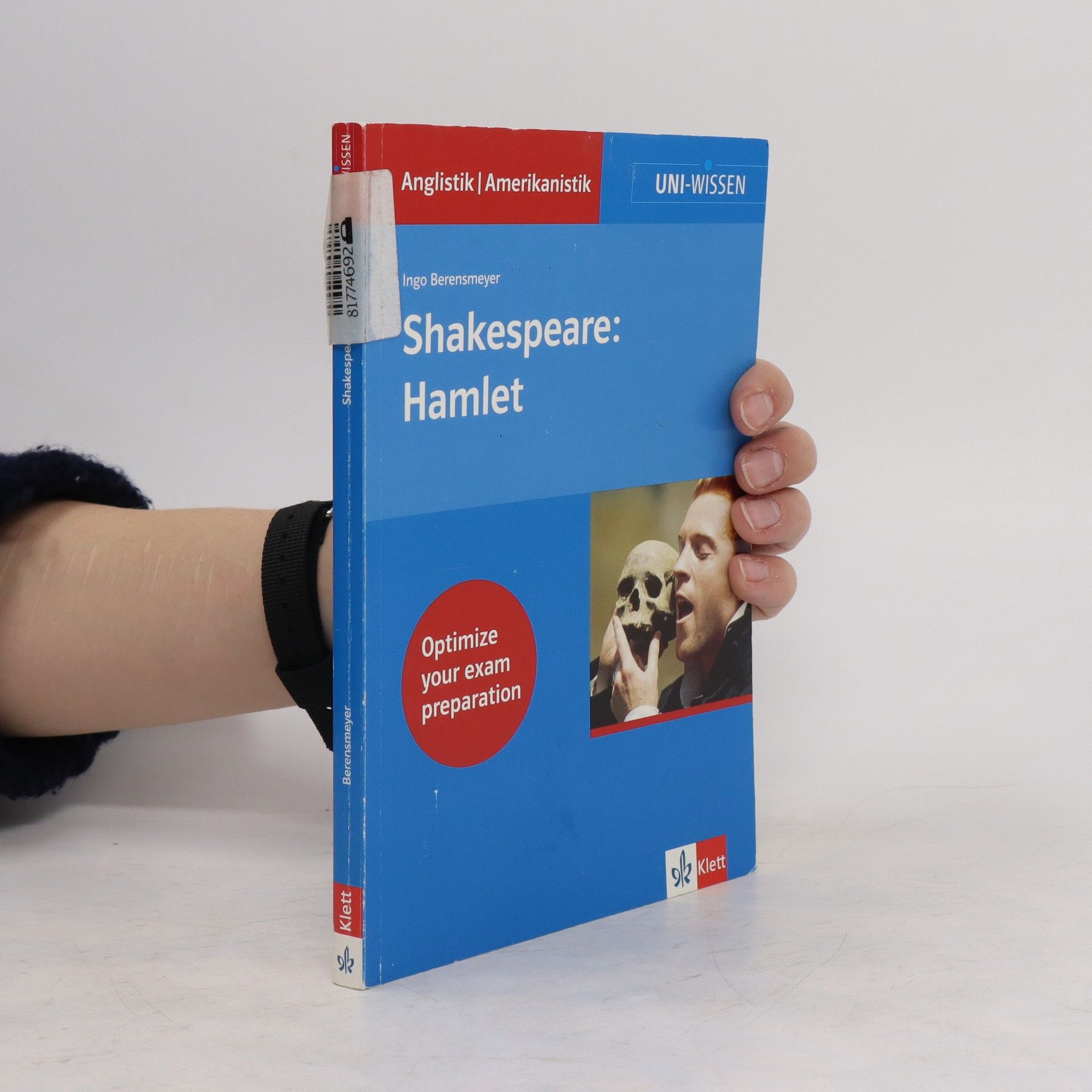Ingo Berensmeyer This book offers not only an introduction to a wide range of different approaches to the play but also an exemplary interpretation that combines the aesthetics of theatrical performance with aspects of literary and cultural history. The book includes recommendations for further reading, study questions and a chapter on exam preparation.
Ingo Berensmeyer Livres





A Short Media History of English Literature
- 314pages
- 11 heures de lecture
The exploration of literature's evolution highlights its transformation alongside various media and communication methods, from manuscripts to digital platforms. It emphasizes how literary experiences are intertwined with material forms, suggesting that literature adapts and evolves in response to these changing formats. By examining the interplay between tangible and intangible elements, the book provides a nuanced understanding of how literature engages the senses and reflects broader shifts in communication.
Focusing on the period between 1630 and 1700, the book examines the interplay between literary culture and the evolving material, epistemic, and political landscapes of England. Through case studies and close readings, it highlights the transition to neoclassicism, revealing its profound impact on various social practices and institutions, including poetry, politics, and notions of civility. This exploration underscores the seventeenth century as a transformative era in literary history.
Author Fictions
Narrative Representations of Literary Authorship since 1800
Fictional novelists and other author characters have been a staple of novels and stories from the early nineteenth century onwards. What is it that attracts authors to representing their own kind in fiction? Author Fictions addresses this question from a theoretical and historical perspective. Narrative representations of literary authorship not only reflect the aesthetic convictions and social conditions of their actual authors or their time; they also take an active part in negotiating and shaping these conditions. The book unfolds the history of such ‘author fictions’ in European and North American texts since the early nineteenth century as a literary history of literary authorship, ranging from the Victorian bildungsroman to contemporary autofiction. It combines rhetorical and sociological approaches to answer the question how literature makes authors. Identifying ‘author fictions’ as narratives that address the fragile material conditions of literary creation in the actual and symbolic economies of production, Ingo Berensmeyer explores how these texts elaborate and manipulate concepts and models of authorship. This book will be relevant to English, American and comparative literary studies and to anyone interested in the topic of literary authorship.
"Angles of contingency"
- 349pages
- 13 heures de lecture
Der kultur- und mediengeschichtliche Stellenwert des 17. Jahrhunderts wird unterschätzt. In diesem Buch unternimmt Ingo Berensmeyer die Neuvermessung einer vernachlässigten Epoche, indem er nach den Wirkungsbedingungen literarischer Kultur in England zwischen ca. 1630 und 1700 fragt. In dieser Zeit des Bürgerkriegs, der Restauration und Revolution ist das Literarische oftmals eine Fortsetzung des Krieges mit anderen Mitteln. Doch die streitenden Bürger der 'republic of letters' eint ein Kontingenzproblem: Mit dem wachsenden Einfluß des Buchdrucks nimmt nicht nur die Leserschaft zu, sondern auch die Menge alternativer, konkurrierender Beobachtungen. In einer Reihe von Beispielanalysen zeigt Berensmeyer, wie unterschiedliche Kontingenzerfahrungen im 17. Jahrhundert literarisch verarbeitet werden und wie der Kontingenzbegriff dabei zur Motivationskraft einer fundamentalen Neuorientierung literarischer Wirkungen avanciert. Die Untersuchung mündet in eine Neubewertung der Rolle des englischen Neoklassizismus als einer kulturellen Konfiguration, die sich auf ein breites Spektrum gesellschaftlicher Praktiken und Institutionen auswirkt: von der Dichtung zur Politik und von der Erkenntnistheorie zur gepflegten Verhaltenskultur. Die in traditionellen Literaturgeschichten oft stiefkindlich behandelte 'Zwischenzeit' zwischen Shakespeare und der Entwicklung des Romans erscheint so in einem neuen Licht.